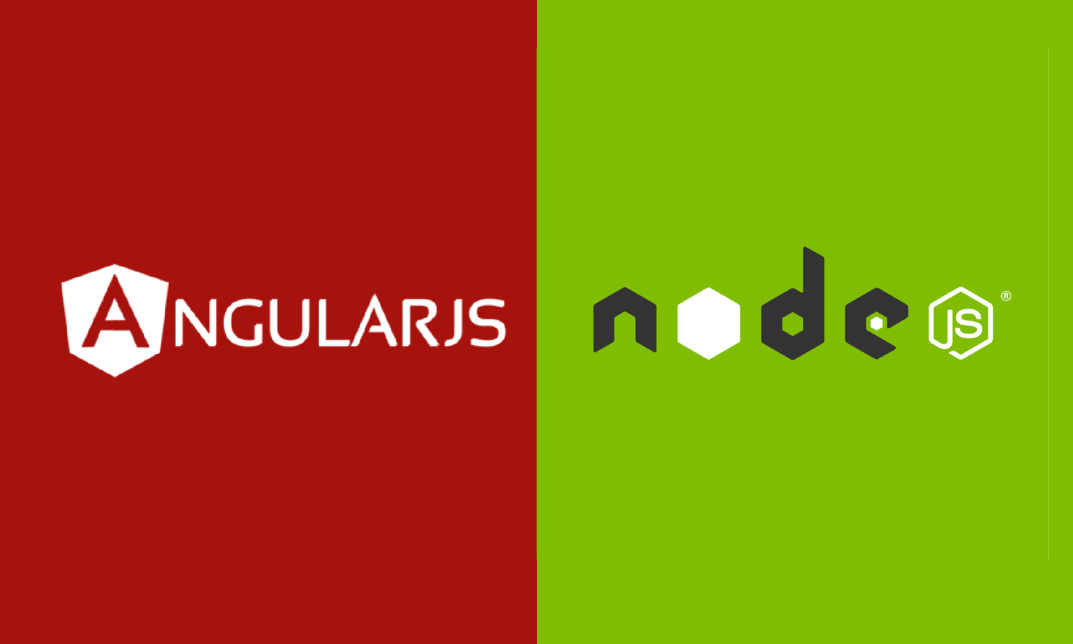In the rapidly evolving domain of web development, Angular.js and Node.js have emerged as two cornerstone technologies. This article delves into the significance of Angular.js and Node.js for developers in 2023, shedding light on why acquiring proficiency in these frameworks is indispensable.
Angular.js: A Comprehensive Overview
Developed by Google, Angular.js is an open-source JavaScript framework tailored for crafting dynamic, single-page applications (SPAs). It employs the Model-View-Controller (MVC) architectural pattern to streamline application development, enabling seamless data binding and interactive UIs.
Node.js: Server-Side JavaScript Unleashed
Node.js, created by Ryan Dahl, is an open-source, server-side JavaScript runtime built on Chrome’s V8 engine. It’s celebrated for its scalability and performance, powered by an event-driven, non-blocking I/O model, making it adept at handling concurrent connections.
Advantages of Angular.js
- Two-Way Data Binding: Angular.js synchronizes data between the model and view, facilitating automatic UI updates;
- Dependency Injection: Simplifies the management of application components, fostering modular code;
- Directives and Templating: Enhance HTML functionality, allowing developers to build custom components and dynamic templates;
- Robust Testing Framework: Angular.js supports comprehensive testing tools, ensuring code reliability.
Advantages of Node.js
- Asynchronous, Event-Driven Architecture: Facilitates scalable applications capable of managing numerous simultaneous connections;
- JavaScript Universality: Harmonizes client and server-side development, streamlining project workflows;
- NPM Ecosystem: Offers an extensive library of modules, enhancing development efficiency;
- Scalability and Performance: Excellently suited for real-time applications, courtesy of its high throughput and low latency.
Angular.js: Considerations and Challenges
- Steep Learning Curve: Angular.js’s complexity and breadth of features demand a significant learning investment;
- Performance Overhead: The richness of features may impact application load times, necessitating optimization efforts;
- Compatibility and Mobile Support: Navigating compatibility issues and limited native mobile capabilities can be challenging.
Node.js: Potential Limitations
- Callback Complexity: Managing deeply nested callbacks can complicate code readability and maintenance;
- CPU-Intensive Task Handling: Its single-threaded nature might not be optimal for CPU-heavy operations, potentially bottlenecking performance.
Angular.js vs Node.js: Key Differences
| Aspect | Angular.js | Node.js |
|---|---|---|
| Primary Function | Front-end JavaScript framework | Server-side JavaScript runtime |
| Architectural Pattern | MVC | Event-driven, non-blocking I/O |
| Use Cases | SPAs, dynamic web applications | Real-time applications, APIs, microservices |
| Development Focus | Enhancing UI/UX | Scalable server-side solutions |
| Performance | Client-side rendering | High concurrency and throughput |
| Community Support | Extensive, with rich learning resources | Vibrant, with a broad ecosystem |
Angular.js: Market Demand and Use Cases
Angular.js remains relevant for developers involved in legacy projects or requiring a robust framework for dynamic SPAs and enterprise applications. Its data-binding and MVC architecture continue to support complex applications in various sectors.
Node.js: Market Demand and Use Cases
The demand for Node.js skills is buoyed by its versatility in building efficient, scalable server-side applications. It’s particularly valued in real-time applications, IoT, and full-stack JavaScript development, offering a broad spectrum of career opportunities.
Learning Angular.js and Node.js in 2023
The choice between learning Angular.js and Node.js hinges on your career trajectory and project requirements. Node.js stands out for server-side development, while Angular.js shines in front-end application development. Both frameworks offer rich communities and extensive resources for learners.
Video Guide
To answer all your questions, we have prepared a video for you. Enjoy watching it!
Conclusion
In the rapidly evolving landscape of web development, the decision between mastering Angular.js and Node.js is not just a matter of choosing a technology but strategically positioning oneself for future opportunities. As we delve into the comparative analysis of Angular.js and Node.js, it’s evident that each framework has carved out its niche within the development community, catering to specific needs and project requirements.
Angular.js, with its robust structure and comprehensive suite of tools, remains a cornerstone for developers aiming to craft dynamic, single-page applications with rich user interfaces. Its data-binding features and MVC architecture streamline the development process, making it an ideal choice for projects where front-end interactivity and seamless user experiences are paramount.
On the other hand, Node.js stands out for its server-side capabilities, offering a scalable solution for building high-performance, real-time applications. Its non-blocking I/O model and event-driven architecture enable developers to manage numerous concurrent connections, making it a go-to choice for web servers, API services, and applications requiring intensive data processing.
The choice between Angular.js and Node.js ultimately hinges on the specific goals and requirements of your project. For those looking to specialize in front-end development and user interface design, Angular.js offers a comprehensive framework to build intricate and responsive web applications. Meanwhile, Node.js caters to developers focused on server-side scripting, backend services, and building scalable network applications.
As we move forward into 2023 and beyond, the significance of both Angular.js and Node.js in the web development ecosystem is undeniable. Embracing either of these technologies not only equips developers with valuable skills but also opens up a myriad of opportunities in the ever-growing field of web development. Whether you’re a novice seeking to break into the industry or an experienced developer looking to expand your expertise, the journey through Angular.js and Node.js is one of continual learning, adaptation, and innovation.
